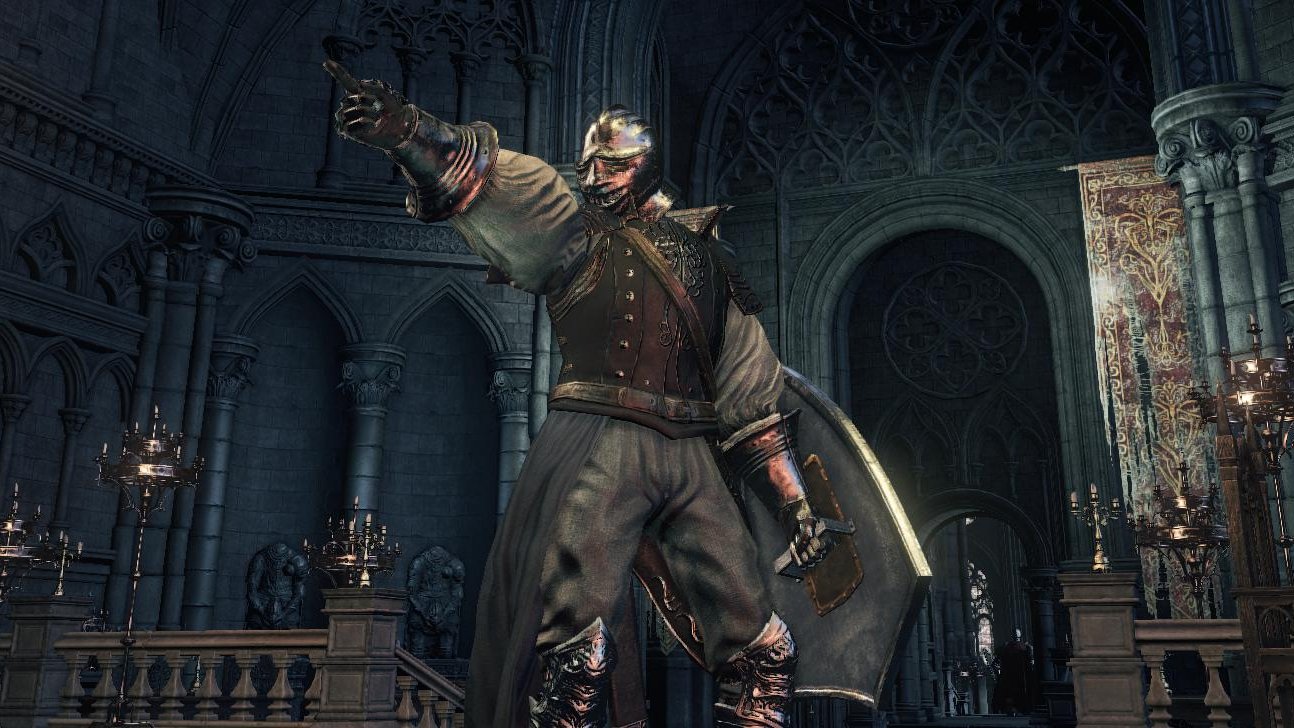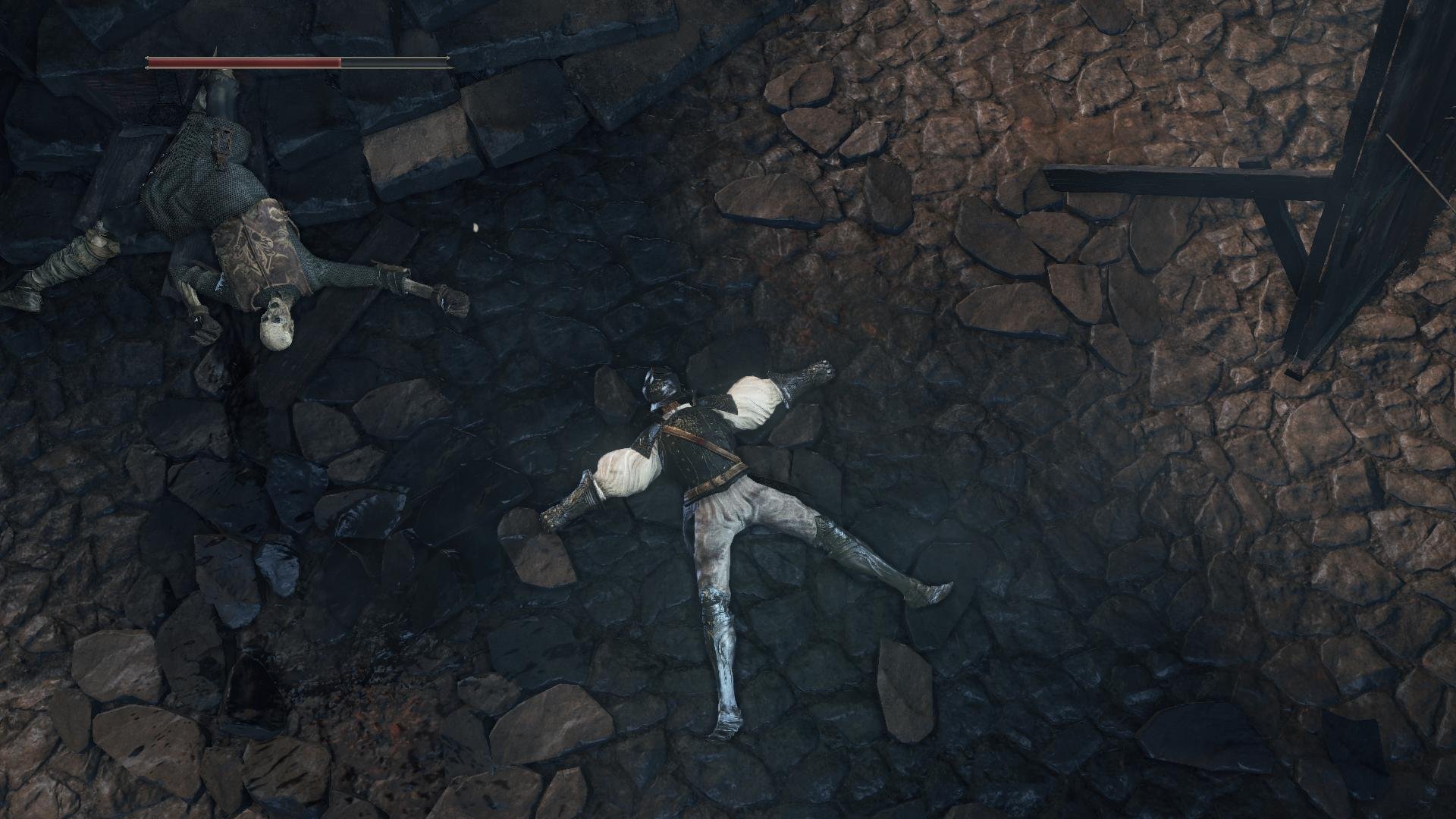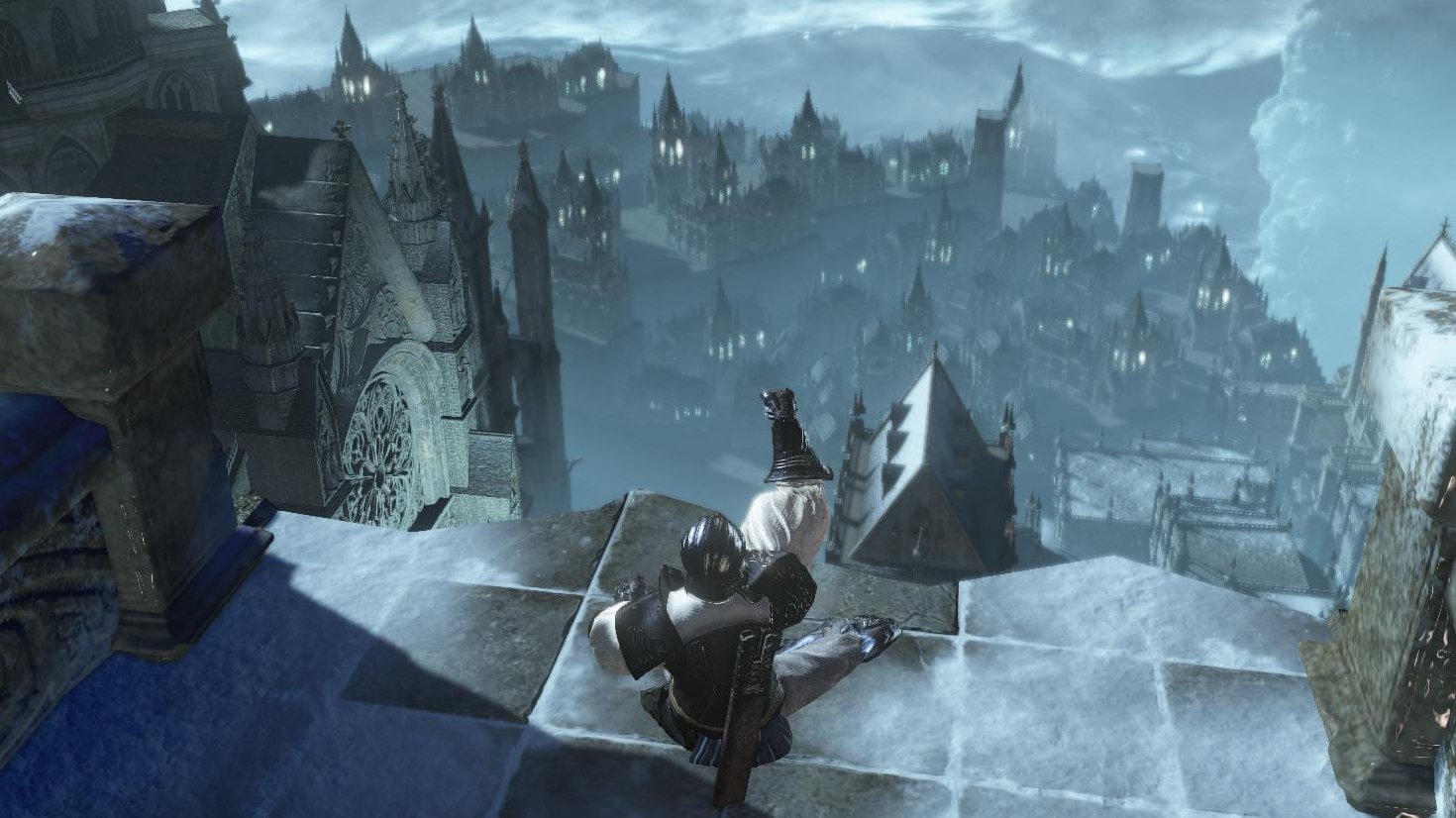Why I love Dark Souls 3's expressive gesture system

You meet all sorts of people on the battlements of Dark Souls 3. Impatient players, playful players, roleplayers who like to dress up as Dark Souls heroes and villains. Dress, weapon choice and fighting style all contribute to your image—Souls fashion is serious business—but it's the gesture system that gives you personality, and allows for mischievous banter. Without this language of posture and counter-posture the Kingdom of Lothric would be a gloomier place.
It's a matter of etiquette. Do you bow when you meet an opponent in a duel? Which of the game's three bows do you choose? The official duelling bow, with a formal clasp of the hand to the chest, might be a little too reverent for some. The standard bow—a mere nod—might suggest a level of casual acknowledgement that doesn't give your opponent too much credit. But what if your opponent attacks as you pay respect? Such rudeness only makes victory sweeter.
In cooperative scenarios gestures let players celebrate, commiserate and squabble. At the fog gate to one tough boss, I swapped a friendly wave with one co-op partner while another warped in and simply pointed towards the boss as though to say "let's get on with this". Gestures manage to communicate so much without sound, by necessity. It allows for a sparkle of humour without undermining the heavy sense of doom that pervades Lothric. Voice chat would be too brash and noisy, almost sacrilegious, like farting in the Bodleian Library.

Gestures are accessed through their own menu, and in the beginning your choices are limited to a series of differently-angled points, a wave and a celebratory air-punch. As you meet NPCs your collection of emotes grows, and your character's emotional range grows with it. Forty hours ago I could merely point at things, now I can lie on the floor with my arms and legs spread out like a giant armoured toddler. I can collapse on the floor, defeated. I like my character more for it.
There's more to the gesture system than player communication. Dark Souls is great at world building traditional RPG systems. Your inventory is both a stash and an expression of your amassed personhood. The cursed Darksign that lets you revive at a bonfire every time you die is a scar on your character's body, but you'll also find it as an object in your inventory, because in game logic terms your inventory, along with your stat sheet, is the sum of what you are.
Your gesture collection is part of this, and so forms an important part of your character's progression. Early on I met a knight who carries a boozy potion, brewed to his own recipe. After some jolly cooperation he gave me a flask and taught me how to toast. Many hours later, perched on the buttress of a huge forsaken cathedral, I toasted the stunning view and remembered my pal. In a small but meaningful way the gesture system let me carry his cheerful outlook with me. I collect little fragments of other characters' worldviews as I roam the world. It's a better expression of 'experience' in an RPG than growing numbers on a stat sheet.

I use gestures all the time, even when there's no one else in my game. I'll reserve a bow for Dark Souls' most tragic bosses. I'm also fond of the the Darkmoon Loyalty gesture that causes your avatar to take a knee in the dignified repose of a committed, honourable warrior. It also happens to mirror the brooding rooftop poise of a different sort of dark knight. Whenever I need to wait for an elevator or find a scenic perch, this is the gesture for me. I have no affiliation with the Darkmoon covenant, but I'm bound to love a system that allows me tolook like Batman. It's one small, perfect system in an outstanding game.
Keep up to date with the most important stories and the best deals, as picked by the PC Gamer team.
Part of the UK team, Tom was with PC Gamer at the very beginning of the website's launch—first as a news writer, and then as online editor until his departure in 2020. His specialties are strategy games, action RPGs, hack ‘n slash games, digital card games… basically anything that he can fit on a hard drive. His final boss form is Deckard Cain.


